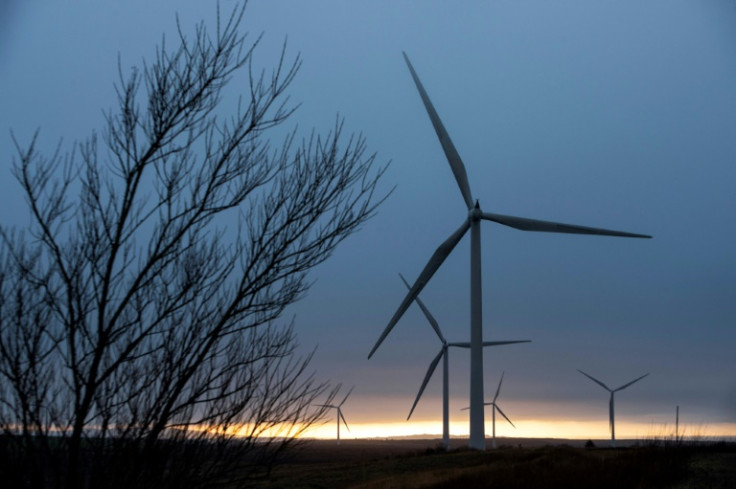UK eases effective ban on onshore wind in England
The UK government eased a de facto ban on onshore wind in England on Tuesday, after growing pressure from environmental campaigners and some ruling Conservative lawmakers.

The UK government eased a de facto ban on onshore wind in England on Tuesday, after growing pressure from environmental campaigners and some ruling Conservative lawmakers.
The changes will make it easier for willing communities to get wind turbines erected in their area, ending highly restrictive planning rules which meant a single local opponent could scupper proposed onshore wind projects.
Local government authorities were also required to draw up detailed plans showing all the areas suitable for onshore wind development before new wind farms could go ahead.
Those rules, introduced by former prime minister David Cameron in 2015 amid fears of a backlash from typically Tory voting rural communities, resulted in an effective ban on new wind farms and smaller sites.
Under the new regulations, communities can apply to their authority to have onshore wind turbines built which are not part of the so-called development plans.
Elected councillors will still take the final decision, but must now take into account the view of communities as a whole and not just a small minority in opposition.
Meanwhile, the government said it will explore "improved rewards and benefits to be offered to communities backing onshore wind farms", which includes potential energy bill discounts.
"To increase our energy security and develop a cleaner, greener economy, we are introducing new measures to allow local communities to back onshore wind power projects," Michael Gove, Secretary of State for Levelling Up, Housing and Communities, said in a parliamentary statement.
"This will only apply in areas where developments have community support, but these changes will help build on Britain's enormous success as a global leader in offshore wind, helping us on our journey to net zero," he added.
Britain has become a global leader in offshore wind energy in recent years but increasingly lagged behind in onshore capacity, which is cheaper and quicker to build.
The planning rules update follows sustained calls by renewable energy advocates and a growing revolt by Tory MPs, including former COP26 president Alok Sharma.
The government also held a months-long public consultation earlier this year on the changes to the National Planning Policy Framework which saw over 26,000 responses.
However, some campaigners criticised Tuesday's moves as insufficient.
"These feeble tweaks are just more hot air from the government that'll result in very little wind," Greenpeace UK's policy director, Doug Parr, said.
"Developers will continue to face uncertainty over planning process and be beholden to quixotic decisions by local councils," he added.
"Who will put their money into developing projects under those circumstances?"
© Copyright AFP 2025. All rights reserved.





















